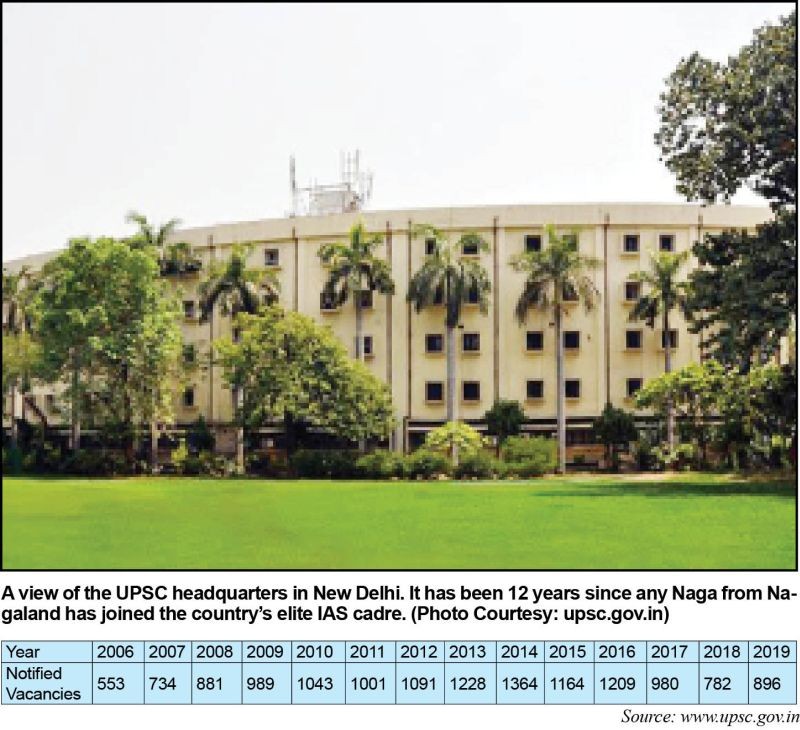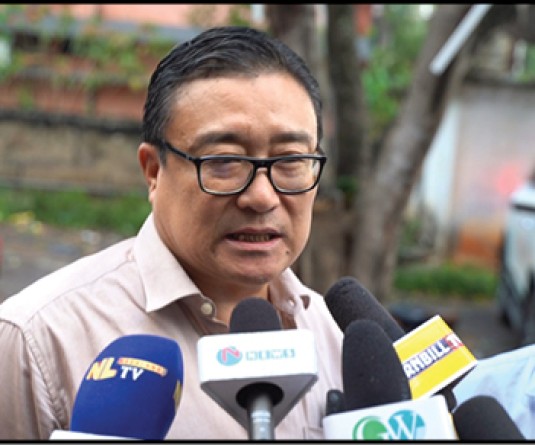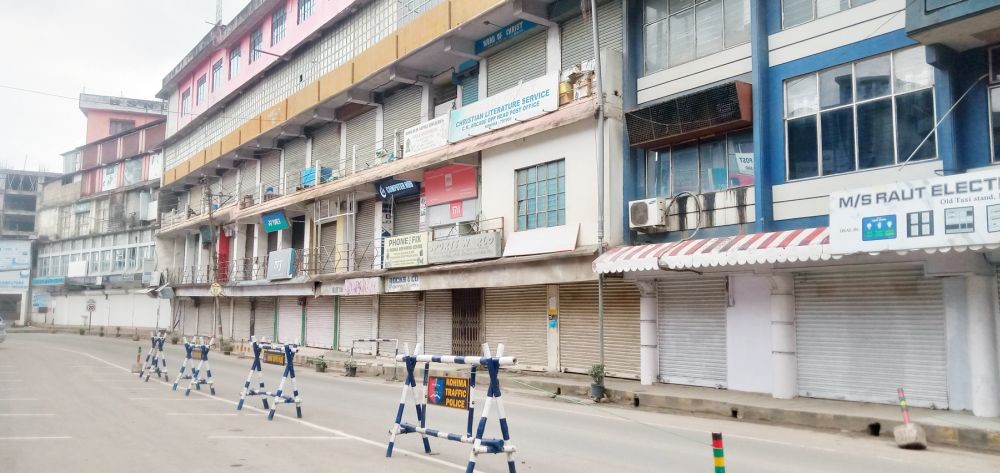
Nagaland has not seen a Naga IAS officer since 2007
Imkong Walling
Dimapur | May 7
Joining the Indian Civil Services is considered as among the toughest in the world. Every year, lakhs of young Indians with a graduate degree or above attempt to clear the first of a 3-stage set of tests conducted by the Union Public Service Commission (UPSC) for a limited number of posts in the IAS and Allied Services.
782 was the number of vacancies as notified by the UPSC for the 2018 exams. Roughly 4 lakhs appeared the preliminary exam, out of which around 10,500 qualified to sit for the Mains. 1994 was the number of candidates, who finally cleared the Mains and went on to be called for the final interview.
In the case of Nagaland, a big void has become apparent, especially in the elite IAS cadre.
A decade after the state last saw one of its own join the IAS club in 2007, only one - Swapneel Paul from Dimapur – has since made it to the list. Paul was ranked 64th in the 2017 exams, the results of which was declared in 2018.
But the state drew a blank again in the most recent 2018 examinations result declared earlier in April this year raising the spectre of yet another dry spell. In 2018, 3 Nagas out of 10 were reported to have cleared the Mains but could not clear the final viva-voce stage.
Conversely, notified post vacancy has seen a substantial increase since 2006-2007. From 553 in 2006, annual notified vacancies consistently hovered at over a thousand from 2010 till 2016 only to dip in 2017 and 2018. As per the latest UPSC notification, the vacancies for 2019 were approximately 896. (See table for comparison)
With this in context, The Morung Express caught up with Kesonyu Yhome, IAS (2007 Nagaland Cadre), who was the last Naga from Nagaland to become an IAS officer, for extrapolation on what could possibly be the reasons for the over a decade long void in the IAS cadre.
According to Yhome, the reasons for Nagas struggling in recent years could be manifold.
“It could be that Naga aspirants are unable to catch up with the changing examination pattern and solely dependent on coaching materials,” said Yhome, who currently holds the post of Commissioner of Taxes, Nagaland.
He admitted that coaching institutes offer quality inputs, while adding, “The nature of the UPSC exams is rather amorphous that solely depending on coaching inputs may not be adequate.”
Speaking of examination pattern, he said that as per the current trend, more weightage has been given to General Papers with the inclusion of new topics like interpersonal skills, logical reasoning and analytical ability, problem-solving along with basic mathematics.
Another factor to be considered is that most Naga UPSC aspirants also appear the State Civil Services Exams and many who clear it settle for the job to stop any serious UPSC pursuit, he said.
A sinking level of enthusiasm was also not ruled out. “The level of commitment amongst the aspirants and to some extent proper guidance could both be missing which may need to be addressed.”
According to him, it could be because of an utter reliance on the reservation system and attempting the exams solely out of “peer or family pressure” without honest intent. “Competitive exams are hard to get by unless the candidate himself or herself has a strong will to pursue.”
“There is no set prescription for success” but hard work and consistency are indispensable qualities, he asserted. An aspirant, he said must have clear focus and firm resolve accompanied by a good grasp of the “wider gamut of the examination.” Attaining broad-based knowledge by way of both intensive and extensive reading and general awareness are also essential, he added.
“Coaching tutorials should not substitute personal struggle. Tutorials can only aid your preparation, not guarantee success.”
Further, the consistent failure of Nagas making the IAS list has locally raised an all too apparent apprehension of ‘locals’ missing out on holding influential administrative positions few years into the future.
Farfetched it may seem in the context of a welfare state, observers here contend that the implication cannot be overlooked if one is to consider underlying human dynamics in the humdrum of bureaucracy.
Commenting on this, Yhome said that officers assuming policy-influencing positions, in the state and possibly at the Centre, would help gain the attention it deserves. It could be that small states like Nagaland would miss the “broad attention” while drafting government policies, he held.
Individually, he said that an officer will have greater promotional prospects, wider facilities and broad based work experience.
Irrespective of the Cadre assigned to, he added, “the wide experience an official assumes by virtue of such key postings can also be qualitatively utilized by way of temporary postings to the (home) state on deputation.”




